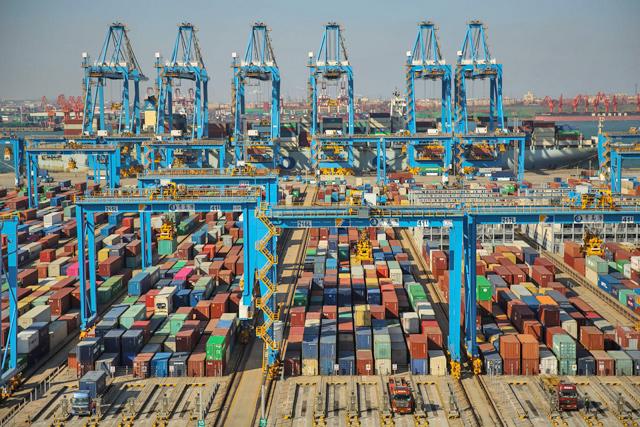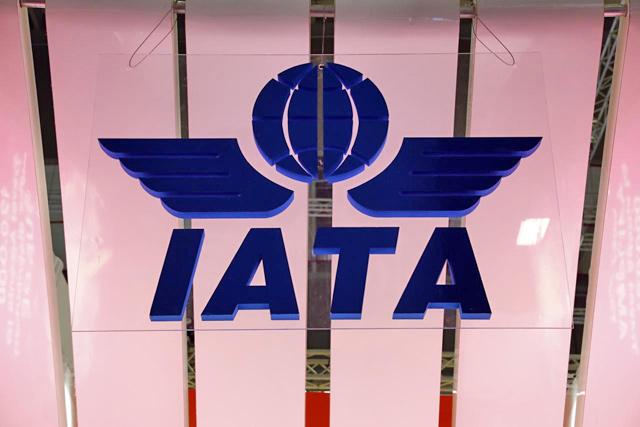You are here
China’s travel market strongest in 2019 — IATA chief economist
By Raed Omari - Dec 12,2019 - Last updated at Dec 12,2019

This photo taken on November 28, shows containers stacked up at an automatic dock in Qingdao in China's eastern Shandong province (AFP file photo)
GENEVA — Despite the slowdown in air travel since early 2018 as a result of the trade war, in particular, this year has seen a broad range of growth across different travel markets with the strongest being the domestic China market which posted an 8.5 per cent increase, according to the International Air Transport Association (IATA) .
Brian Pearce, IATA's chief economist, said other emerging markets, including eastern Europe and within Asia also saw a growth of 8 per cent in air travel in 2019.
A 7.5 per cent growth witnessed within Europe in 2019 was the result of the rise in the emerging markets in eastern Europe, the IATA chief economist said, adding that developed economies in Europe with more mature markets saw much slower air travel growth, close to 3 per cent or less.
The weakest market was across the Pacific, reflecting the impact on travel of the US-China trade war, he said.
Despite regressing demand, Pearce explained that airlines have continued to connect more cities with regular air service. "We forecast that unique city-pair connections will rise over 23,000 for the first time in 2020.
"Connecting cities is the airline industry's critical value proposition to the world economy... It brings the flows of trade, investment, skilled workers, competition, innovation as well as tourism," he said during the IATA Global Media Days which commenced on Wednesday.
On airlines profit margins, he said returns on capital and operating profit margins of airlines have been on the decline since 2016.
"This year [with data through to Q3] the industry seems to have stabilised margins at a level of 50 per cent of the peak 3-4 years ago, but still better than earlier performance."
Citing forecasts of the International Monetary Fund for a better global gross domestic product growth in 2020 as a result of the policy response to weaker growth this year, Pearce said that the growth next year should contribute to improving demand and airline profits.
However, the economist said that the global GDP forecasts are based on trade war "truce" with one major uncertainty being the trade tariffs and how the US will proceed with its trade policy over the next year.
"Our working assumption for the forecast... that ahead of the US elections, we will see a 'truce' with no reduction in existing tariffs but no additional tariffs either."
He explained that the expected global economic growth from 0.9 per cent in 2019 to 3.3 per cent in 2020 will be "moderately supportive for the air cargo business".
However, the economist explained that, in case demand growth picks up in 2020, there is a threat that supply could rise even faster, given the 2100+ aircraft that are secluded to be delivered once, as expected, the B737 MAX returns to service.
"At 7.5 per cent of the fleet, that represents an addition of more than 2 per cent points."
"Slightly stronger economic growth in 2020, together with stable fuel prices is expected to keep air travel growth close to this year's at 4.1 per cent. 2018 was the last of 9 years of air travel growth at or above the 5.5 per cent 20-year average. We have now entered a period of below trend growth for air travel,” he elaborated.
Related Articles
GENEVA — The International Air Transport Association (IATA) forecasts the global airline industry net profit to be $35.5 billion in 2019, sl
GENEVA, Switzerland — The International Air Transport Association (IATA) forecasts global aviation net profit to increase by around 11
Geneva — Airlines are expected to earn $35.6 billion this year, “a record profit”, even if slightly less than original expectations, IATA Di


















